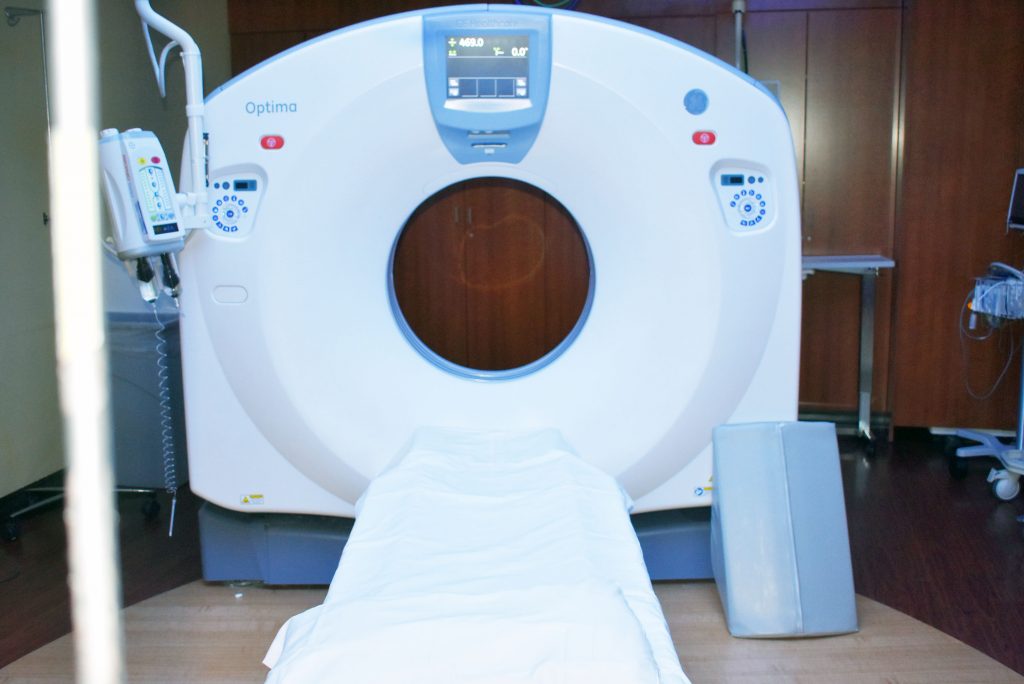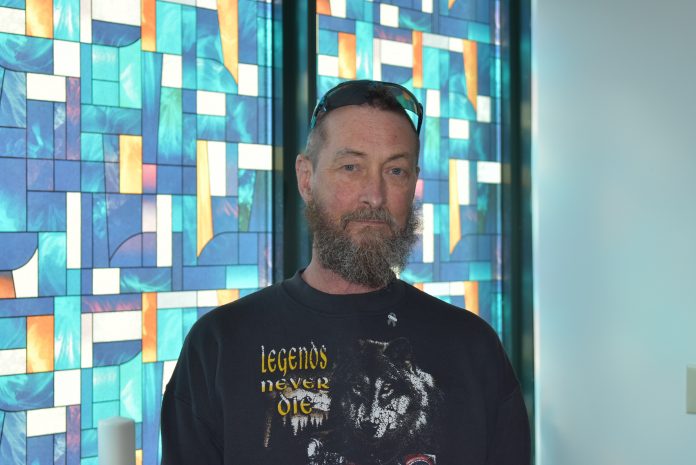Bryan Sterner smoked a pack of cigarettes a day, but rarely felt out of breath. The 62-year-old workhorse had a physically demanding job as a crane operator, constantly loading and unloading heavy wares by hand. Doctors said his lungs sounded fine, but given his four-decade history of smoking, wanted to perform a cancer screening as “preventative maintenance.”
“Obviously the outcome was not what anyone anticipated,” he said. He was diagnosed with stage 4 cancer in his lungs that had spread to his brain, which is common with lung cancer. It was a shock to the man who had displayed no symptoms and had no family history of the disease.
Sterner’s case is unique, but lung cancer can be hard to detect. Only 2.5% of eligible people in the country take advantage of getting screened for lung cancer, which accounts for a quarter of cancer deaths and about 154,050 deaths in the country annually.
Screenings for cancers such as mammograms and colon cancer are significantly higher, said Dr. Shayma Master Kazmi of Cancer Treatment Centers of America. There could be several reasons why percentages for lung cancer screenings are much lower: It was one of the last cancer screenings to be approved by multiple organizations, and low dose CT scanning is not available in every part of the country, meaning screenings may have more limited availability. Screenings such as mammograms and colonoscopies are age-based requirements.
“Patients who actively smoke don’t always go in for evaluations because they worry they will be yelled at if they haven’t quit smoking yet,” Kazmi said. She emphasized quitting smoking is not a prerequisite for getting a lung cancer screening.

Compounded with the lower percentage of screenings is the more difficult to identify symptoms of the disease. Most lung cancers are identified at late stages, usually at Stage 3 or 4, Kazmi said. There are no nerve fibers in the lungs, so unless the tumor is blocking an airway, the person won’t feel pain even from a large tumor.
“The biggest symptom of lung cancer is no symptom at all,” she said. If a person is symptomatic, they’ll likely experience coughing, shortness of breath or blood when they cough.
About one-third of the patients with lung cancer also have brain metastases, Kazmi said, a percentage that is much higher than other cancers.
Despite his diagnosis, Sterner said he feels great, and at 62, he’s far from ready to throw in the towel. He’s a father to four and a grandfather to three, with a fourth grandchild on the way. Like many lung cancer patients his cancer had spread to his brain, which was removed successfully. Within 24 hours of having the brain tumor removed he was up and moving – thanks in part to his stubbornness, he joked. He said it’s his family and his faith that keep him motivated.
“I’m not a quitter and I believe in the Lord,” he said. He recalled being at a concert for gospel musical group Bethel Music when the singer paused the concert and said someone in the crowd needs praying for.
“She specifically said someone was diagnosed with lung cancer,” Sterner said. “Who stops a concert right in the middle like that?”
One of Sterner’s friends raised his hand and the information of Sterner’s diagnosis was relayed back to the musical group, who led a prayer for Sterner right at the concert.
“There were prayers going out for me all over the United States,” he said.
Sterner urged anyone who has a history with smoking and is getting older to get a preventative maintenance cancer screening like he did, emphasizing the cancer is treatable if you find it early enough.
Screening is recommended for people ages 55 to 80 who have a history of heavy smoking and smoke now or have quit within the last 15 years. Heavy smoking means smoking an average of one pack a day for 30 years.
Patients who get screened at CTCA will find that the actual screenings take only two or three minutes, tops. They will fill out a questionnaire about cancer risk factors, and those who qualify will come in and lay down on a CAT scanner, which will lift them up and carry them through the scanner and be done in a matter of minutes.





